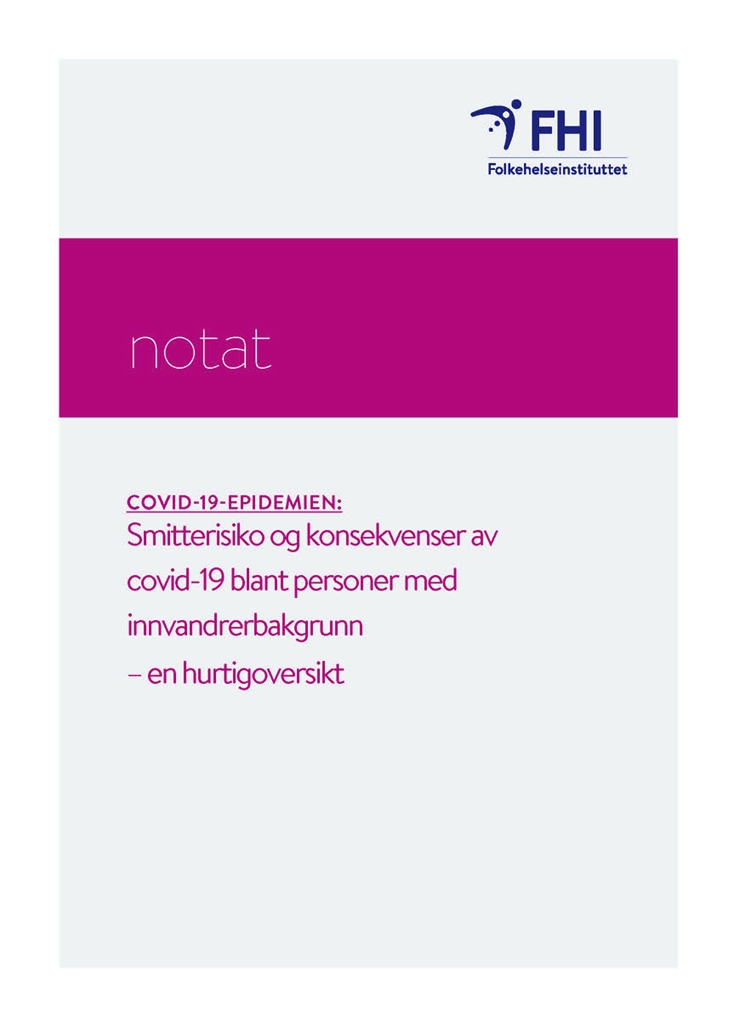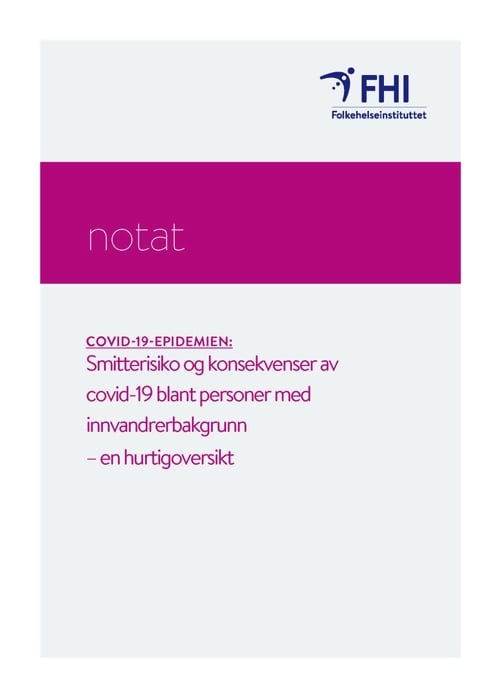Risk of infection and consequences of COVID-19 among people with immigrant background: a rapid review
Systematic review
|Published
This rapid review has been commissioned on behalf of the Integration Department in the Ministry of Education.
Key message
This rapid review has been commissioned on behalf of the Integration Department in the Ministry of Education. The rapid review is based on a search for systematic reviews in Epistemonikos' L ∙ OVE database as well as a selection of other relevant systematic overviews. Due to a timely deadline, we have not conducted searches for primary studies nor assessed the quality of the included studies. We have included seven different systematic overviews, three of which published by the Norwegian Institute of Public Health. In this rapid review, we have aimed to capture the results of the various overviews in relation with each other.
An overview by Vist et al. concludes, based on Norwegian data, that the risk of infection is probably higher among ethnic minorities than among people born in Norway. For serious illness and death, the documentation is less certain, suggesting that risk is higher among people with an immigrant background than among people born in Norway. Increased risk of COVID-19 infection and death cannot be explained purely by an increased incidence of other medical risk factors among people with an immigrant background. The pattern that people with an immigrant background are more exposed to COVID-19 infection, serious illness is seen in several countries, and in various countries of origin.
International research may indicate that many structural factors contribute to people with an immigrant background being more vulnerable to COVID-19 infection than other groups. Many immigrants have jobs that cannot be performed from the home office, and therefore have a greater risk of exposure to infection. Linguistic and cultural barriers can make information less accessible. Additionally, people with an immigrant background are less likely to seek digital health care when there is no alternative. Findings on the pandemic's impact on welfare and living conditions among people with an immigrant background remains uncertain. However, several studies indicate that immigrants are particularly vulnerable to losing their jobs or being laid off as a result of lockdowns.
Conclusion
People with an immigrant background are more prone to COVID-19 infection, serious events and death, probably due to complex underlying reasons. There remains limited research on how the pandemic and infection prevention control measures have affected the welfare, living conditions and quality of life of people with an immigrant background.

